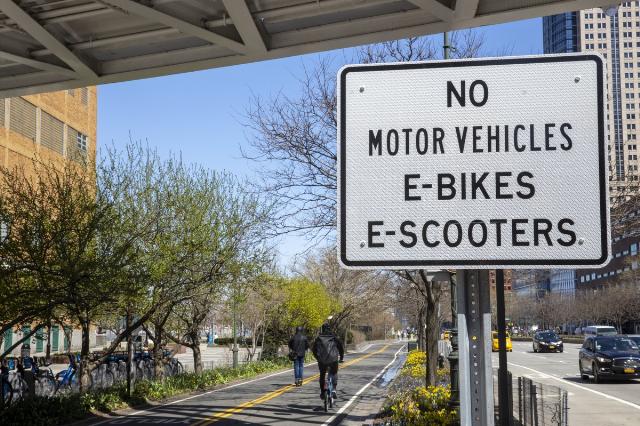Eliminating Biden’s EV mandate
President-elect Donald Trump’s transition team has announced that it is planning to eliminate the $7,500 consumer tax credit for electric vehicle (EV) purchases as well as relaxing the standards on fuel efficiency for automobile makers as part of the incoming administration’s reform agenda.
The decision to jettison the EV subsidy, first reported by Reuters, came as no surprise, seeing as how Trump campaigned on ending President Joe Biden’s EV mandate. Throughout the Biden administration, a substantial push was made to transition from conventional gasoline-powered automobiles to EVs.
The $7,500 EV subsidy was one of the more notable measures of the Inflation Reduction Act (IRA), which many argued was yet another example of the federal government picking winners and losers.
Moreover, another report from Reuters details how the incoming administration plans on addressing the standards on fuel-efficiency requirements and emissions finalized earlier this year by the U.S. National Highway Traffic and Safety Administration and the Environmental Protection Agency. This move would counteract Biden’s regulations that require all automakers to shift at least 35 percent of their production to EVs by 2032.
Critics of Biden’s aggressive actions regarding the automobile industry have called it a “rush-to-green agenda” and highlight the fact that it forces Americans to purchase expensive, impractical, and unpopular EVs.
A report from Consumer Reports shows that electric vehicles are rife with problems and are overall less reliable than conventional automobiles.
Furthermore, in January of this year, a coalition of nearly 5,000 car dealerships sent a letter to Biden urging him to “hit the brakes” on his draconian regulations and mandates. Despite the public pushback, Biden’s emissions standards rule was ultimately finalized.
While Biden’s EV mandate and lavish subsidies have wrought havoc in the auto industry, it has also affected the dependability of the U.S. energy grid.
Our energy grid was once a source of affordable and reliable power. Historically, America’s power grid has been mostly supplied by coal, with natural gas and nuclear power as significant contributors. All these energy sources are extremely reliable, affordable, and have the ability to produce the enormous amount of energy necessary to support the U.S. economy.
However, with the push for a green agenda, the federal government has picked winners and losers in another way. Under Biden, the federal government has mandated the retirement of reliable and conventional energy plants while rewarding utilities with extravagant profits for the construction of so-called green energy sources such as wind and solar. What’s more, the push for green energy has been advocated for by giant utility companies and green lobbyists. Unsurprisingly, this has led to the destabilization of the energy grid and ever-rising energy prices as well as more frequent blackouts and brownouts.
Ironically, the EVs that Biden, Left-leaning ideologues, and green lobbyists want to force Americans to drive require huge amounts of electricity from a grid they are making less reliable.
Fortunately, it appears more than likely Trump will make good on his campaign promise of discarding Biden’s EV mandate and fuel-efficiency requirement. This will be a boon for American consumers, not to mention auto manufacturers. Moreover, it will reinject free-market principles into a domestic automobile industry that is struggling to stay afloat.
It is likely that Trump will have more in store for energy policy in the coming months and years. If these recent announcements are any indication, we should expect to see more individual freedom, commonsense energy policy, and climate realism.
Samantha Fillmore (sfillmore@heartland.org) is the senior state government relations manager at The Heartland Institute.

Image: Andrew Henkelman





